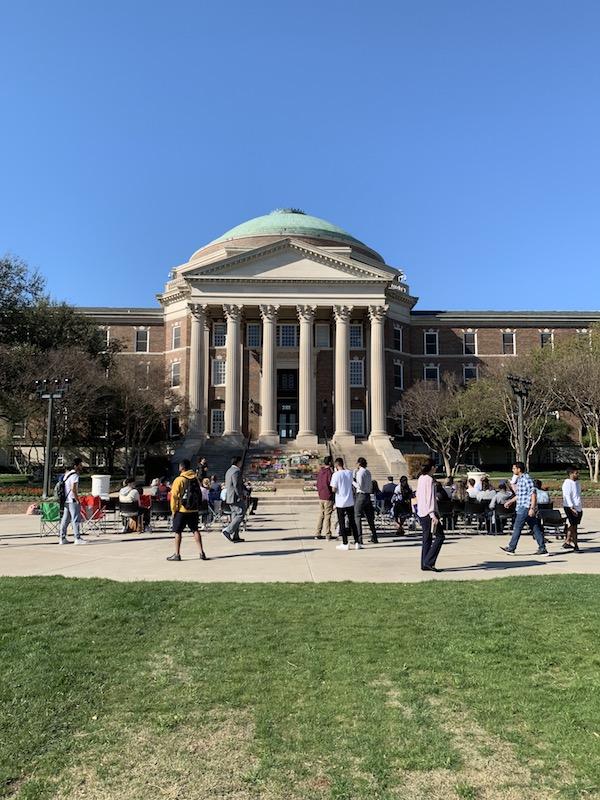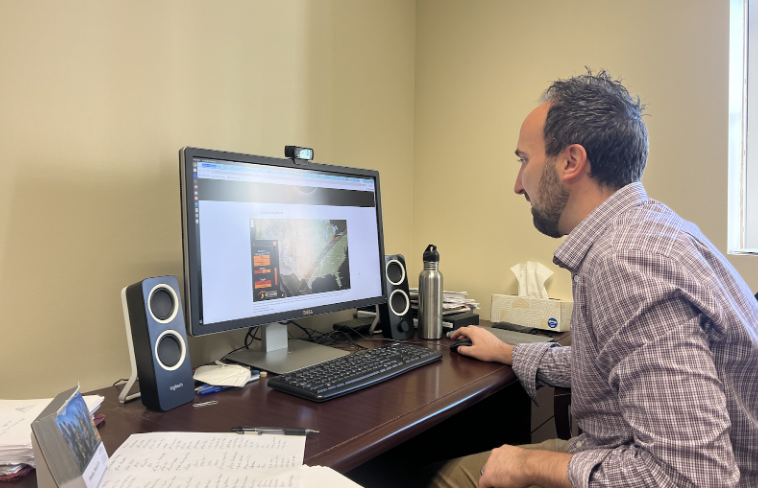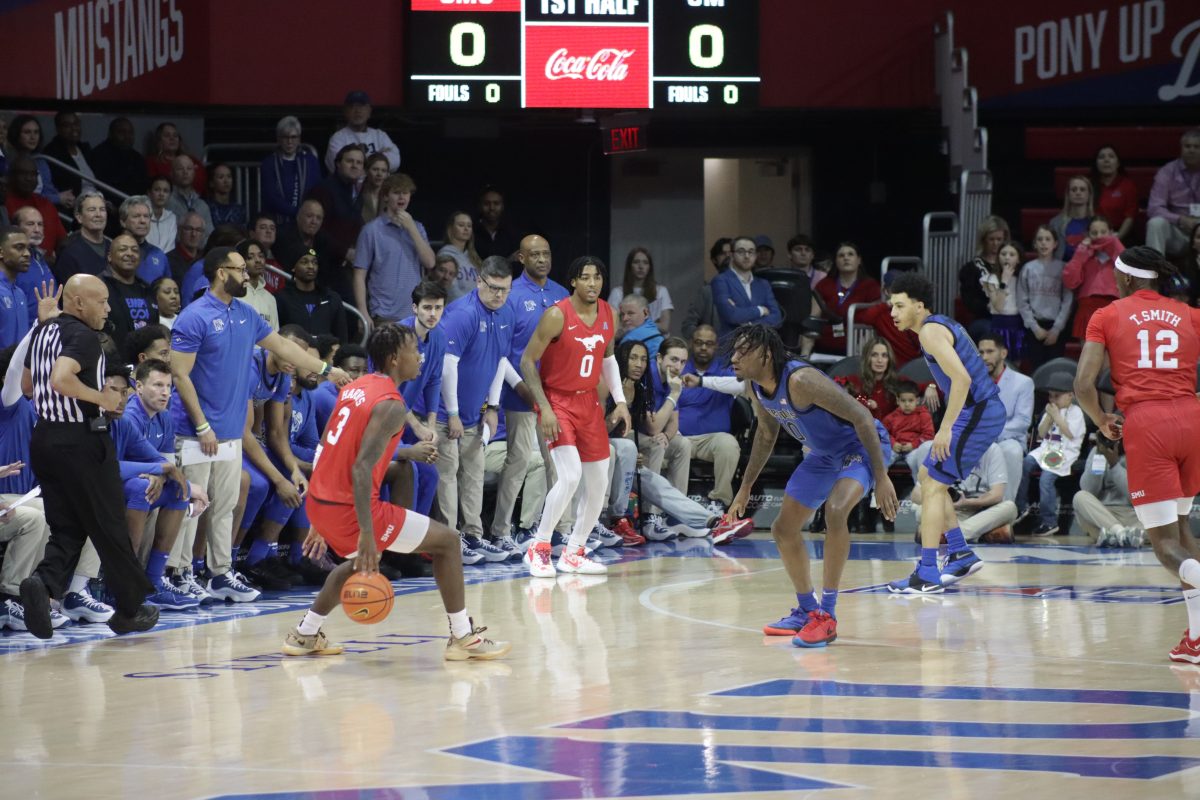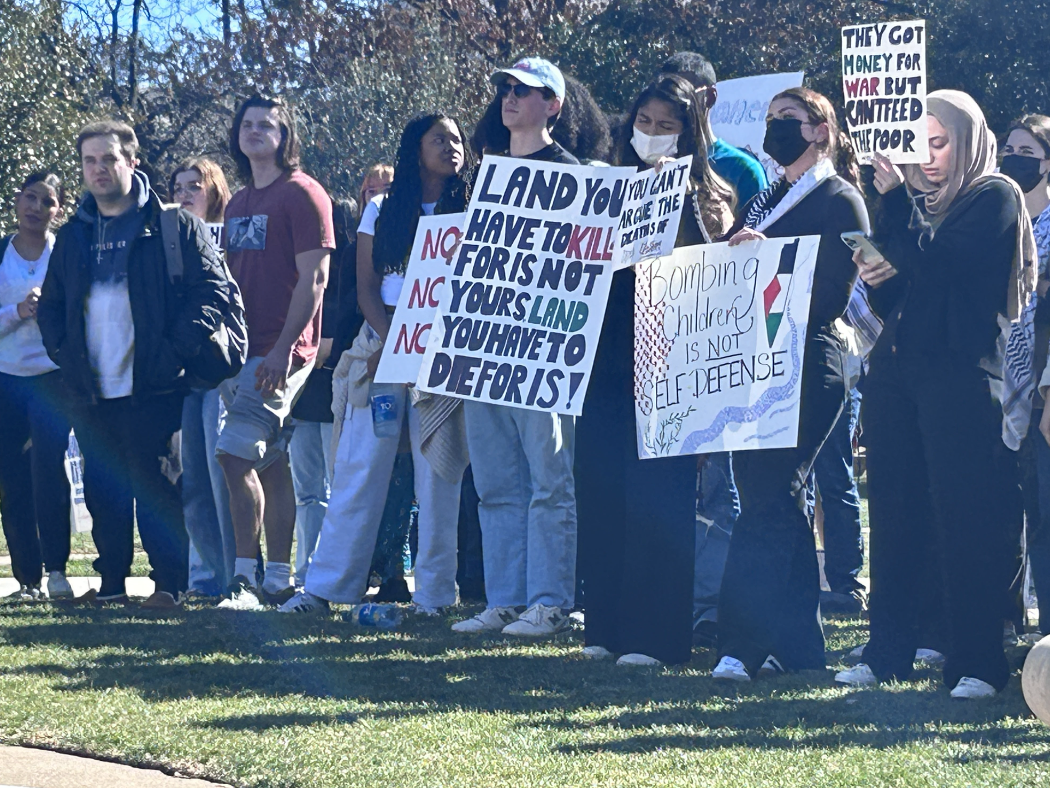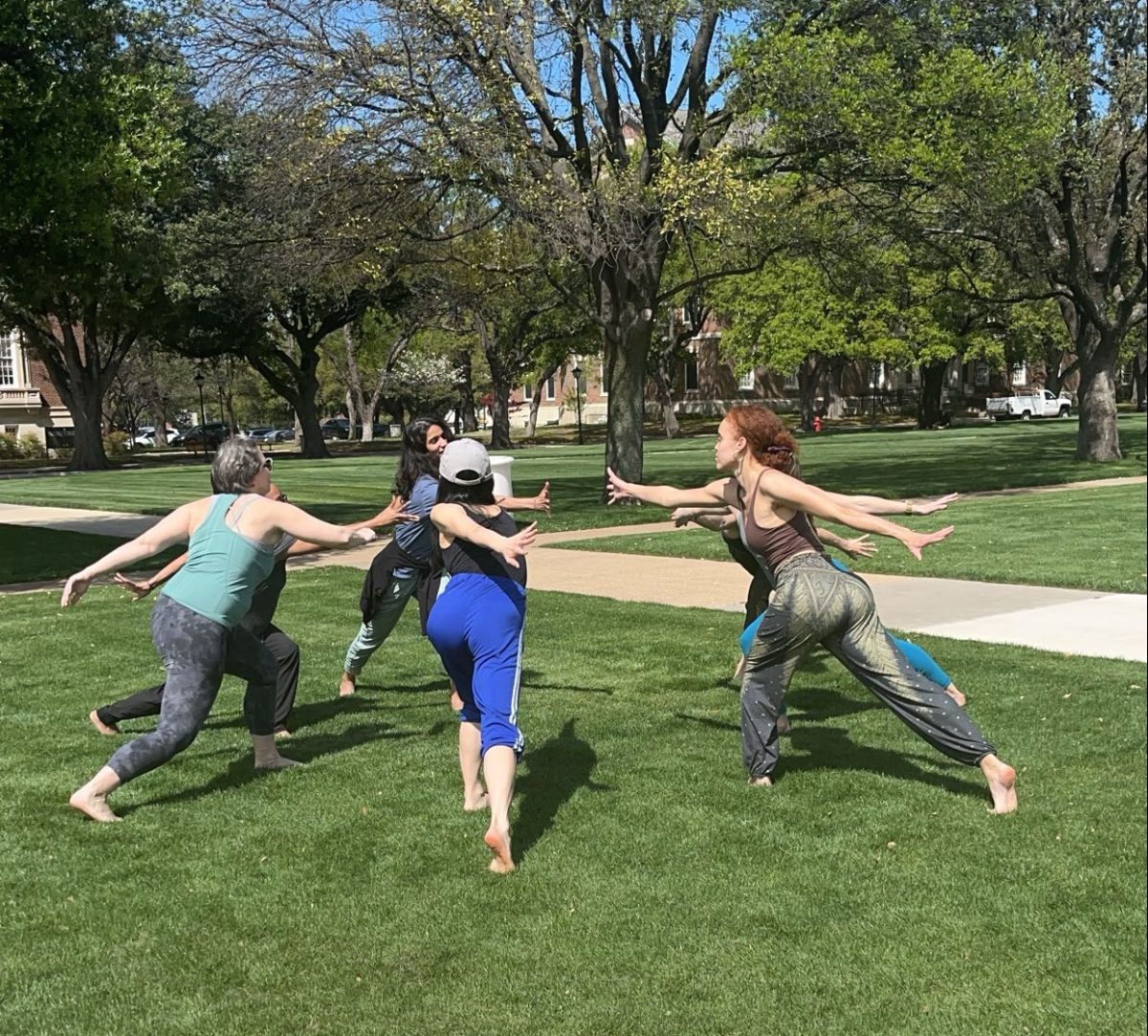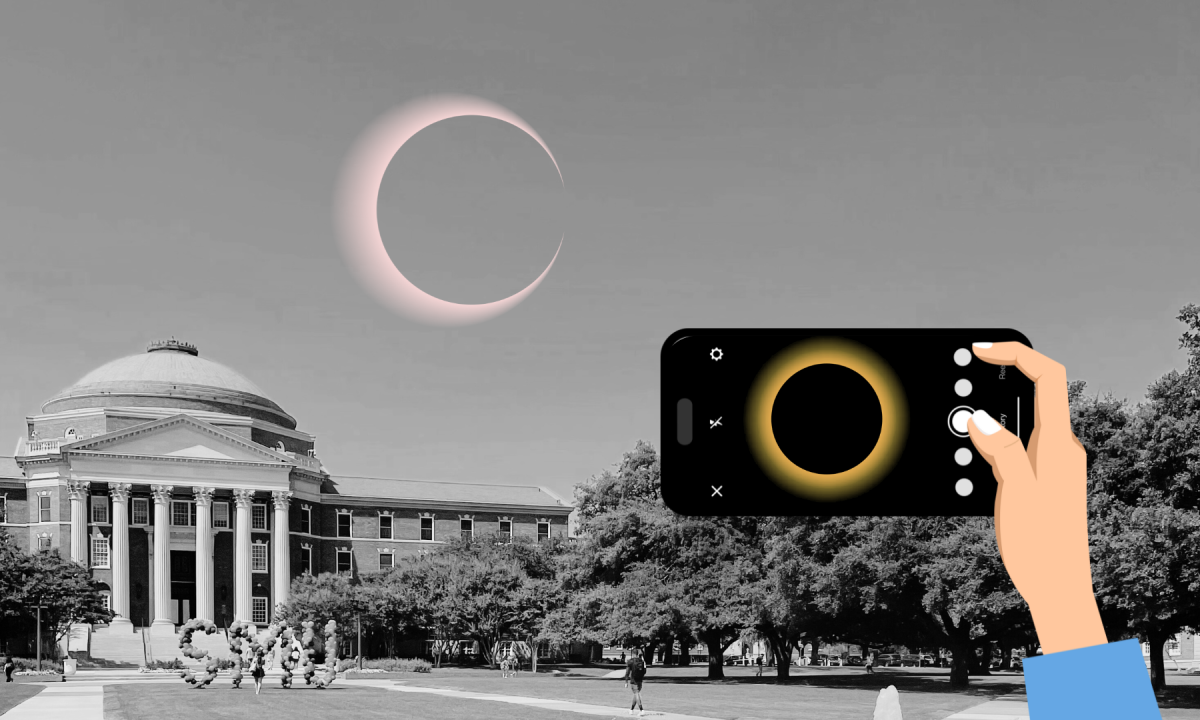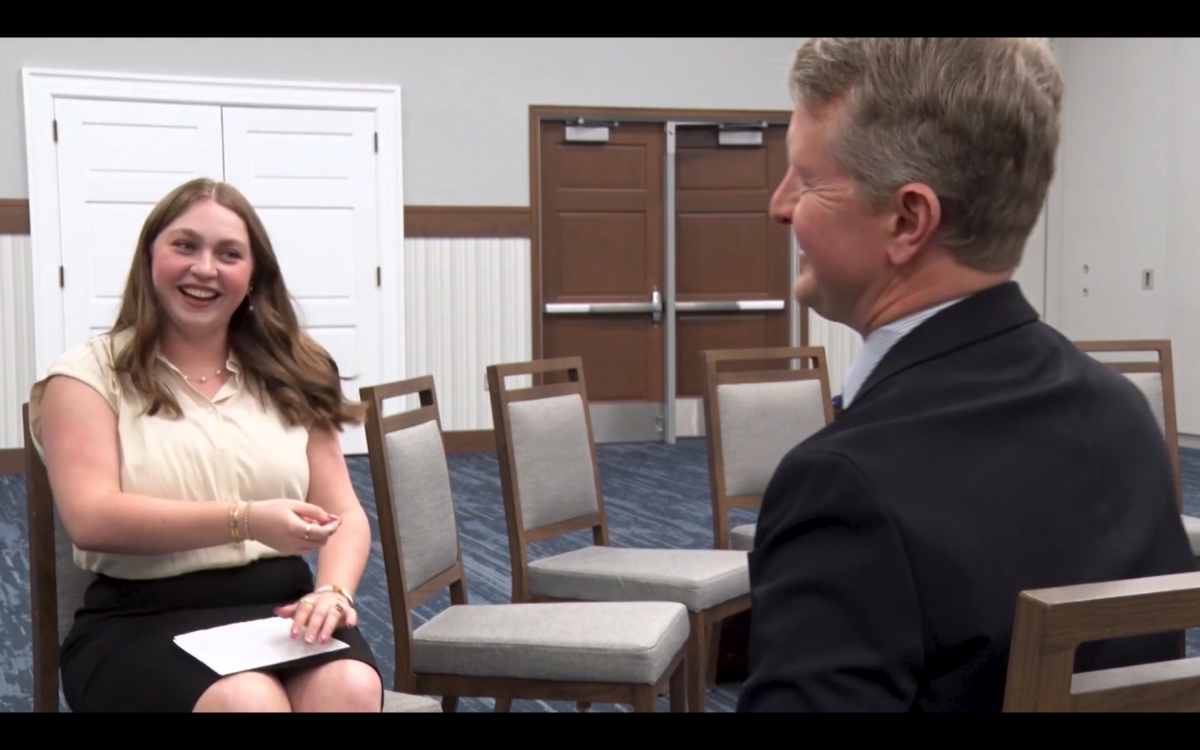More than 80 people of different ethnicities, religions and backgrounds gathered on Monday on Dallas Hall lawn to honor the lives lost in the March 15, 2019 New Zealand massacre.
Ahmed Muhammad, who initiated the event and is Treasurer of SMU’s Muslim Student Association (MSA), said he felt empowered to organize the vigil because of the kindness he has received from the Office of the Chaplain.
“I remember just a small, crude example,” Ahmed Muhammad said. “When we pray in the prayer room, we usually take our shoes off, we usually have to [sic] like take off our shoes on the floor. The chaplain’s office, they saw that, and they brought us a shoe rack.”
These simple acts of kindness were remembered and celebrated at Monday’s vigil service.
“There’s some people that believe that faith comes out of human weakness. My sense is that faith, in many instances, comes out of the greatest strength that humanity has.”
Five speakers drew attention to the unity that faith can bring across religions. Chaplain Rankin, President Turner, Isabel Docampo (Director of Center for the Study of Latino/a Christianity and Religions), Ameer Hamzah and Ahmed Muhammad presented unified messages of love’s victory over hatred and fear.
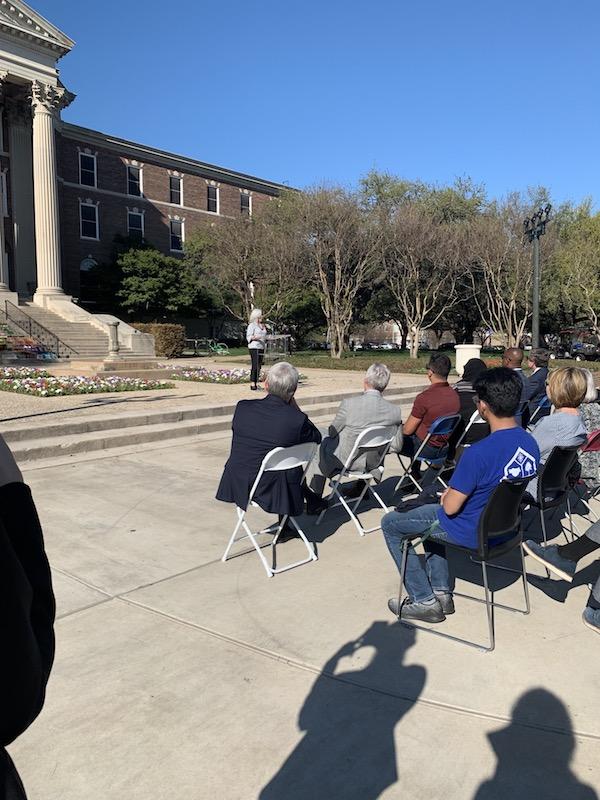
The speakers addressed the crowd from a small podium in front of a background of 50 prayer rugs. Each namaz rug represented a life lost in the massacre.
Ahmed Muhammad read the names of the first five victims whose identities were reported and prompted audience members to observe a moment of silence after each name. His somber voice and the silent audience were a stark contrast to the many students lounging on other parts of the lawn, enjoying the sun after class.
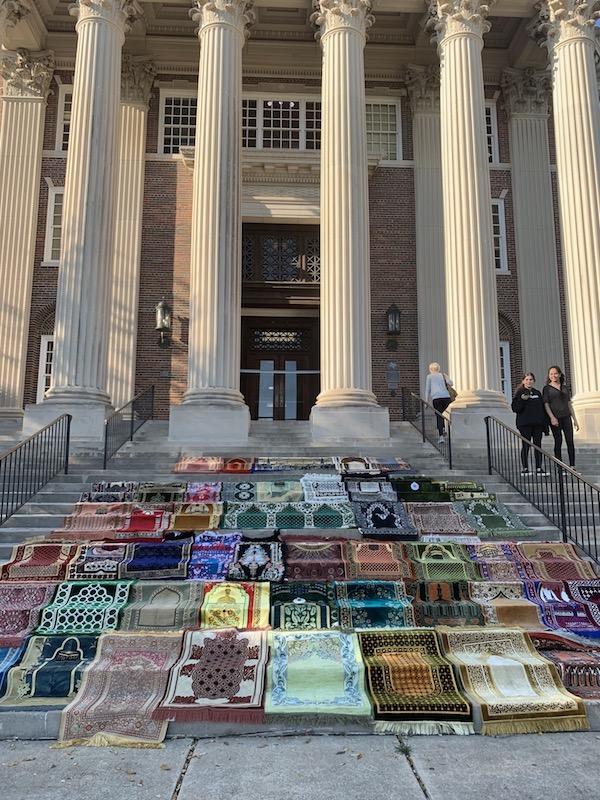
The speakers urged the audience to recognize the need for inter-faith friendships in their own life.
“Relationship is the place to start,” Chaplain Stephen Rankin said. “If I know somebody and I really come to like that person, and if that person is of a different faith or a different background of some kind, I’m challenged to work out my prejudices.”
Relationship is the place to start.
Aisha Ahmed, biology and history senior and MSA member, said work needs to be done with inter-religious student groups on campus.
“There is racism on campus, there really is,” Ahmed Muhammad said.
He noted that massacres like the one in Christchurch, New Zealand start with smaller, marginal seeds of hatred before they grow into violent attacks. He said the essence, ideology and hatred behind these actions can be observed in racist remarks he hears on campus.
Ahmed Muhammad said he believes that most of these remarks come out of ignorance, and that people are generally good at heart.
“It’s really hard for people to think a little more rationally and kind of separate radicals from regular people,” he said. “Especially when […] they at least look the same and follow the same religion, although it’s really not the same religion. Especially when they’re a minority, it’s really easy to group them together as one. I think that’s the challenge people are facing here at SMU.”
In spite of the tragedy, speakers and attendees demonstrated the desire to communicate across existing cultural and religious divisions on campus, using their faith as the foundation for their connection.
“There’s some people that believe that faith comes out of human weakness,” President Turner said. “My sense is that faith, in many instances, comes out of the greatest strength that humanity has.”








